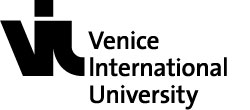Su2406 Africa: Postcoloniality and the Modern World
Professors
Schedule
Course description
The modern world is characterized by a highly interconnected landscape in which various worldviews vie for dominance across economic, political, and social networks, and in which power is unequally distributed. This has led to the proliferation of marginalized voices that address the continuation of, and seek redress for, the historical forces behind their disempowerment. For many, Western colonialism of the late 19th century sits at the core of this disempowerment. Africa, both conceptually (in terms of its various representations) and literally (in terms of its history), is a prime case study for exploring the intersections of these heterogeneous narratives. This course explores the interdisciplinary field of postcolonialism, which examines the cultural, political, and economic aftermath of colonialism, with a particular focus on Africa. We will examine how colonialism shaped the identities, experiences, and perspectives of colonized people, how this legacy continues to influence power dynamics in the modern world today. We will also explore how Africans resist these processes by establishing agency in postcolonial societies. Our aim is to deconstruct representations of Africa established during the colonial era, as well as representations from Africa that challenge them. The course will incorporate visits to Venice’s 60th International Art Exhibition, titled Stranieri Ovunque – Foreigners Everywhere, especially the Nucleo Storico exhibition about global modernisms and modernisms in the Global South. We will also cover the exhibitions of first-time African exhibitors Benin, Ethiopia and Tanzania, as well as Senegal’s first national pavilion at the Giardini.
This course, accessible to students without prior knowledge of African studies, will draw from a range of disciplines, including literature, art, history, politics, and cultural studies, as well the various African exhibitions at the 2024 Art Biennale, to offer a multi-disciplinary examination of postcolonial Africa. Our hope is that students will leave the course with a newfound understanding not just of contemporary Africa, but also of their own histories and identities.
Syllabus
Week 1: A colonial history of Africa (the Scramble for Africa, WWI, inter-war period, WWII, colonial representations of Africa)
Week 2: African independence (movements, wars, rising nationalisms, philosophies).
Week 3: Africa post-independence (conflicts, politics, economics, society, culture).
Week 4: Postcoloniality today (decolonisation, culture, identity, arts)
Teaching method
The course consists of 2 x 4.5 hour face-to-face meetings per week over four weeks that will be a blend of lectures, seminars, field trips, group presentations, and discussions drawing from multi-media sources like documentaries, films, news clips, music, etc.
Assessments
Two tutorial assignments (to be presented in class) - 10% each of final mark
One research essay - 30% of final mark
One exam at the end of the term - 50%
Virtual component
There will be one asynchronous task before the start of the course in which students will be tested on their existing knowledge (if any) of Africa. It will not count towards the final mark and is only intended to establish a baseline to which their gained knowledge at the end of term will be measured.
Outcomes
This course aims to deepen students' understanding of the interactions between Africa and other regions of the world. Through an examination of African lived experiences, including social, cultural, political, and economic aspects, students will gain a broader perspective on the historical trajectories shaping these experiences in the postcolonial era. By exploring the legacy of colonialism in Africa, this course highlights the ongoing impact of inequality perpetuated by the global power dynamic between the developed and developing world. It also brings into focus the nature of African agency against this background.
Suggested reading list (more sources to be added in response to class discussions):
• "Things Fall Apart" by Chinua Achebe
• "The Wretched of the Earth" by Frantz Fanon
• "Black Skin, White Masks" by Frantz Fanon
• "A History of Africa" by J.D. Fage and R.A. Oliver
• "The Condition of Postcoloniality: Power, Economy, and Culture" by Ato Quayson
• "Imperial Reckoning: The Untold Story of Britain's Gulag in Kenya" by Caroline Elkins
• "Postcolonialism: An Historical Introduction" by Robert J.C. Young
• "The Postcolonial Studies Reader" edited by Bill Ashcroft, Gareth Griffiths, and Helen Tiffin
• "Postcolonial African Cinema: From Political Engagement to Poetic Reflection" by Josef Gugler
This list is by no means exhaustive, but it should provide a good starting point for further exploration of the topic.
Last updated: April 5, 2024




















